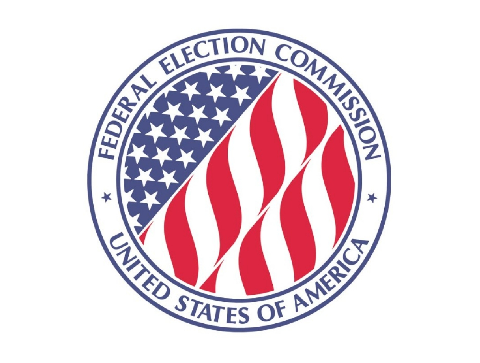PDF of comments available here
Via Electronic Mail
Lisa J. Stevenson
Acting General Counsel
Federal Election Commission
1050 First Street, N.E.
Washington, D.C. 20463
RE: Comments in Support of AOR 2019-12 (Area 1 Security, Inc. II)
Dear Ms. Stevenson:
On behalf of the Institute for Free Speech (“the Institute”),[1] we respectfully submit the following comments in support of Area 1 Security’s advisory opinion request.[2] In this matter, the Federal Election Commission (“FEC” or “Commission”) has the opportunity to clarify that candidate and party committees may make use of any commercially-available tool at its commercially-available price.
Area 1 Security intends to sell an anti-phishing program developed by former National Security Agency and United States Cyber Command computer security experts.[3] The program is priced at multiple tiers: a $10 per-threat-caught model for large organizations, and a flat-rate tier for smaller organizations.[4] This flat rate model is offered to “non-profits, humanitarian organizations, and startups,” but the rate itself varies based upon the number of persons employed by a given organization.[5] The question is whether Area 1 Security may provide a reduced, flat-rate of $1,337[6] for its cyber security services to candidate committees and party committees.[7]
The Act and regulations prohibit corporations from making contributions to federal candidates and political party committees.[8] And a contribution is “any gift, subscription, loan, advance, or deposit of money or anything of value made by any person.”[9] The Commission interprets the scope of “contribution” to include “the provision of any goods or services without charge or at a charge that is less than the usual and normal charge for such goods or services.”[10] Any difference “between the usual and normal charge for the goods or services at the time of the contribution and the amount charged the political committee” is treated as an in-kind contribution.[11]
In essence, candidate and party committees may not be given special, one-off deals, for fear of quid pro quo corruption.[12] But, by definition, this is not the case when a committee is charged reasonable market rates—that is, a price actually existing in the market, and not the absolute highest price possible. The Commission’s regulations recognize as much:
[the] usual and normal charge for goods means the price of those goods in the market from which they ordinarily would have been purchased . . . and usual and normal charge for any services . . . means the hourly or piecework charge for the services at a commercially reasonable rate prevailing at the time the services were rendered.[13]
Just last year the Commission allowed Microsoft to provide its “AccountGuard” program, at no additional charge, to committees that already use Office 365 or are enrolled in other Microsoft products.[14] The Commission reasoned that “so long as” a company offers goods and services to political committees “‘on the same terms and conditions available to all similarly situated persons in the general public,’” then a reduced cost, or even cost-free, service is not a prohibited in-kind contribution.[15]
Area 1 Security’s request is a logical and reasonable extension of the Microsoft AO. Area 1 merely seeks to sell security software to political committees at a rate already available to other, non-political, entities. And its pricing structure is consistent with the long line of reasonable allowances made for multiple pricing tiers.[16]
Entities regulated by the Commission should be permitted to use any commercially-available product at a price offered in the broader market. This AOR provides an opportunity to again apply that straightforward principle.
Thank you for considering these comments. Should you have any further questions regarding this or related proposals, please contact the Institute at (703) 894-6800 or by email at adickerson@ifs.org.
Respectfully submitted,
Allen Dickerson
Tyler Martinez
Institute for Free Speech
124 S. West Street, Suite 201
Alexandria, Virginia, 22314
[1] The Institute is a nonpartisan, nonprofit § 501(c)(3) organization that promotes and protects the First Amendment political rights of speech, press, assembly, and petition. Originally known as the Center for Competitive Politics, it was founded in 2005 by Bradley A. Smith, a former chairman of the Commission. In addition to scholarly and educational work, the Institute is actively involved in targeted litigation against unconstitutional laws at both the state and federal levels.
[2] AOR 2019-12 (Area 1 Security, Inc. II) (“AOR”).
[3] Id. at 3.
[4] Id. at 3-4.
[5] Id. at 4.
[6] The pricing also serves to convey marketing information about Area 1 Security. Id. at 4 n.6 (“It selected that amount because “1337” is a numerical transposition of ‘leet,’ a term referring to an ‘elite’ hacker or computer coder”). See also McCutcheon v. Fed. Election Comm’n, 572 U.S. 185, 194 (2014) (Roberts, C.J., controlling opinion) (Shaun McCutcheon “wished to contribute $1,776 to each of 12 additional candidates but was prevented from doing so by the aggregate limit on contributions to candidates”).
[7] Area 1 Security clarifies that $1,337, the amount federal candidates and parties would be charged, is the maximum charge among the lower-tier flat rates. AOR at 4 n.7.
[8] 52 U.S.C. § 30118(a); 11 C.F.R. §114.2(b).
[9] 52 U.S.C. § 30101(8)(A)(i); cf. 52 U.S.C. §§ 30118(b)(2).
[10] 11 C.F.R. § 100.52(d)(1).
[11] Id.
[12] McCutcheon, 572 U.S. at 206-07 (Roberts, C.J., controlling opinion) (“This Court has identified only one legitimate governmental interest for restricting campaign finances: preventing corruption or the appearance of corruption. . . . Moreover, while preventing corruption or its appearance is a legitimate objective, Congress may target only a specific type of corruption—’quid pro quo’ corruption”).
[13] 11 C.F.R. § 100.52(d)(2) (emphasis added). For similar reasons, the Institute has previously cautioned the Commission against adopting a new and unnecessarily burdensome regulatory framework for Internet disclaimers that mandated particular technology or restricted political speakers from certain mediums. See, e.g., Allen Dickerson and Tyler Martinez, Comments to FEC on Notice 2018-06 (Proposed Rulemaking on Internet Communication Disclaimers and the Definition of “Public Communication”), Institute for Free Speech at 14 (May 25, 2018) available at https://www.ifs.org/wp-content/uploads/2018/05/2018-05-25_IFS-Comments_FEC_Internet-Communication-Disclaimers-NPRM.pdf (“Speakers should be able to use any commercially-available tool to engage the electorate.”).
[14] AO 2018-11 (Microsoft).
[15] Id. at 3-4 (quoting AO 2004-06 (Meetup) at 1).
[16] See, e.g., AO 2012-31 (AT&T) (allowing telecom provider to establish a lower rate structure for political committees based on anticipated volume of transactions and brand-building considerations); AO 2012-28 (CTIA) (no in-kind contribution when discounts for text messaging services were offered pursuant to pre-existing business relationship); AO 1994-10 (Franklin National Bank) (allowing waiver of various bank fees to political committees if done in the normal course of business on terms available to other companies); AO 1989-14 (Anthony’s Pier 4) (“cost-plus” pricing tier allowed for restaurant that offered same pricing to other organizations); AO 1987-24 (Hyatt) (discounted rates and complimentary items provided by hotel chain were not in-kind contributions).














